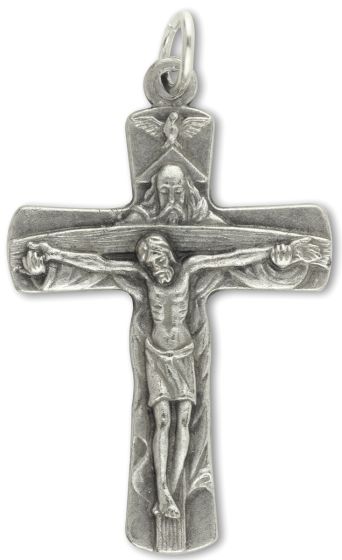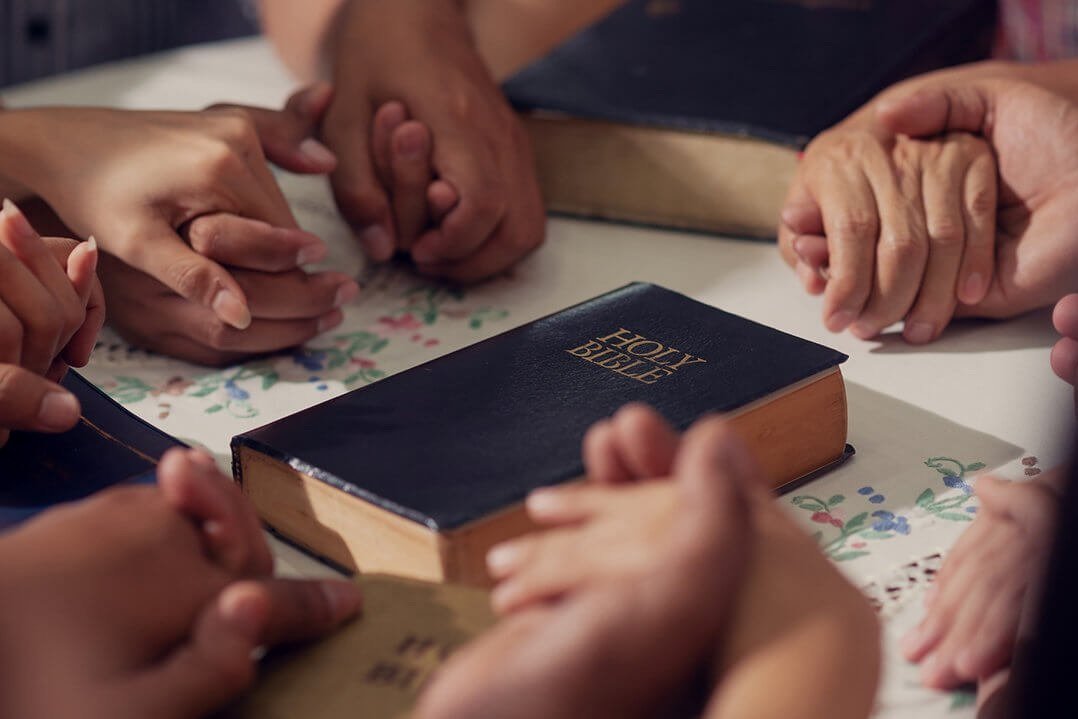The Day of Pentecost
May 28th, A + D 2023
Our Redeemer and Our Savior’s Lutheran Churches
Custer
and Hill City, SD
Wise Thirst – John 7:37-39, Acts 2
We’ve had some nice rain this spring, which is good. We’ll no doubt dry out fast of course; it’s hard to quench the thirst of this rocky land.
Water, along with air and food, is the stuff of life. The Black Hills has plenty of air, and whilegardening and farming aren’t super bountiful here, we have cattle and bison, and our neighboring areas produce plenty of good food for us. But here, water is a scarcer commodity. Drought seems always around the corner, except of course when there’s too much rain.
I think you know what thirst is, and so for you this morning I have good news: Jesus stood up and cried out, "If anyone thirsts, let him come to me, and whoever believes in me, let him drink. As the Scripture has said, 'Out of his innermost being will flow rivers of living water.' Jesus comes to bless us in our need. For life very often can leave you dry, and thirsty, physically and spiritually. Jesus blesses us by reminding us that unless you receive the living waters, you will die. This morning our Lord offers us three nuggets of wisdom for life:
1)
Recognize your thirst for what it is.
2)
Don't drink the Devil's water.
3)
Drink daily and deeply from Jesus, the only source of true living water.
But we have questions. First, what is this thirst that Jesus speaks of?
There is hardly a better feeling than a cool drink of clear water when you are truly thirsty. The Lord God Almighty is behind every drop of good clean water you’ve ever drunk. And yet Jesus has more in mind. He draws on our common understanding of thirst and drinking to drive home His real point: spiritual thirst is a call by the Lord to repent. Jesus came to save sinners from the eternal desert of death and hell. Jesus battles with sin and Satan. In this battle, the prize being fought for is us, body and soul.To thirst means to recognize the battle your caught in, and to recognize your need for a Savior. Which also means recognizing that you are a sinner, deserving of God's anger and punishment. Which you are, and so am I, for who we are, and for the things we do, and for the things we fail to do.
It may seem obvious that we must recognize our sinfulness and need for a Savior. But the world denies this, and seems to get away with it. Sure, most people are willing to say "I'm a sinner, like everybody else." But when it comes down to specifically admitting that your desire for good things has become greed, or your appreciation for beautiful people is really lust, or your irritation at other people is really anger and hatred, well, then people protest. You protest. "No, I know some people may sin like that, but not me. My pleasure in leisure is not laziness. My love for talking about people is not gossip."
This sounds deluded when we hear it out loud. But the world is always eager to take another forbidden apple off the tree and declare it to be good, always ready to move another perversion of God's will out of the sin column and into the normal and good column. And sadly, we are naturally prone to drink the world’s Kool-Aid. Abandoning your spouse or family? The world says that’s just the course you needed to follow to be true to yourself. Homosexual behavior? That's really just a fun alternative lifestyle. Cheating on your taxes? That's just how America works. Or so the world teaches.
In truth, you, and I, are so naturally self-centered and inward turned that we will not and cannot see our sin on our own. So, to you and me God sends His Word. Despite the chaos and deafening noise of our world, God’s Word still speaks, and is heard. God also sends consequences for sin, consequences which God uses to try to get you to confess your sin, before it's too late. Living in our world today means we are constantly at risk of losing our thirst for God. So the first necessary wisdom is to recognize your sin for what it is. Because in the end, God will not be mocked.
Now, for our second bit of wisdom: Once you recognize your sin-caused thirst, be careful how you try to quench it. You might think Satan concentrates all his efforts on getting people to deny they are sinners, or to say sin doesn't matter. And certainly he is happy to keep people living such delusions. But he is by no means done with you, just because you come to recognize your sin. In some ways, Satan's weapons become all the more potent when you are actively seeking God, actively trying to be good. Because when you thirst for God, the Devil tries to sell you his drinks instead.
The Devil will offer you an amazing array of seemingly good thirst-quenchers. But you need purewater from the river of life. Don't drink the Devil's water. Like the ever-expanding selection of flavored sports drinks, Gatorade, PowerAde, Vitamin Water, Propel, many of Satan's offerings look pretty good. But while sports drinks may, or may not, quench your physical thirst, the Devil’s offerings will never quench your spiritual thirst. In the end, Satan’s water will leave you thirsting all the more. If you don't stop drinking what he offers, you will die.
What do I mean? Well, when we sinners thirst for God, realizing we have a sin problem that needs fixing, we all too often end up drinking in a lie.
These lies are peddled by any religion that
teaches that you must earn God's favor, that the way of salvation is paved, in
whole or in part, with your good works.
Every religion except true Christianity teaches this in some form or
another. Islam, Mormonism, Buddhism, New
Age spirituality, nativism, earth religions, all these false faiths teach you
to conquer your shortcomings and ascend toward God, to conquer your thirst by
drawing from within yourself. The Devil
delights to have us draw water from within ourselves. Because all of our wells are poisoned. Because you will not ascend to God. You can't.
Your sin still clings to you and drags you down. Your thirst remains, you can't make the kind
of progress God’s holiness demands.
Sadly, this fake water can end up being poured out in Christian Churches too. Because we want to believe we can make ourselves righteous and holy. And the Devil's lie tastes so good, feels so good going down. For a while, it can even make you feel like you've really taken care of your sin. But you haven’t. Your sin will come back. Which can lead you to drink even more deeply from false waters.
If someone doesn't separate your lips from Satan's water bottle, you'll be like people floating on a raft, lost at sea, driven mad by thirst, until you give in to the urge to drink saltwater. Like saltwater does to our physical thirst, fake spiritual water only makes your thirst worse. And eventually it kills you.
To keep you away from the Devil's water, Jesus stood up [on the last day of the feast] and cried out, "If anyone thirsts, let him come to me, and whoever believes in me, let him drink. As the Scripture has said, 'Out of his innermost being will flow rivers of living water.'
This is true wisdom. Quench your thirst in Jesus. But what a strange thing for Jesus to say. Many translations soften the language and say, “out of his heart will flow rivers of living water.” In the other direction, a more literal translation of "his innermost being" is “his innards.” "His gut." Jesus shocks with His promise: living waters that offer real life flow from my innermost being. From my Body, my guts. Those who heard Him were confused, and people argued about who Jesus was and what He meant. Knowing you might be confused too, the Apostle John gives us a little commentary to help. Translating most literally, As the Scripture has said, 'Out of his gut will flow rivers of living water.' Then John explains: Now this he said about the Spirit, whom those who believed in him were to receive, for as yet the Spirit had not been given, because Jesus was not yet glorified.
Today we
celebrate Pentecost, the coming of the Holy Spirit to the gathered believers 50
days after the Resurrection. Tongues of
fire lit on their heads, and they spoke in many different languages,
proclaiming the mighty works of God.
This was the promised sign of the coming of the Holy Spirit in the new
age, the New Testament time, when God's Spirit would rest on all His
people. This miracle drew a large crowd,
and Peter preached to them.
Our reading from Acts 2 stopped short of the end of that sermon, but we know what happened next. Peter preached Christ. He spoke the truth, that this Jesus whom you crucified was the Son of God, who rose from the dead and is now reigning over all things at God’s right hand. The hearers, cut to their hearts with guilt and fear, asked what they needed to do. Peter replied: "Repent, and each of you be baptized in the name of Jesus Christ for the forgiveness of your sins; and you will receive the gift of the Holy Spirit. For the promise is for you and your children and for all who are far off, as many as the Lord our God will call to Himself." (Acts
In our Gospel reading, Jesus speaks of repentance as thirst. In Acts the gift of repentance flows when the hearers are cut to the heart, the preached Word creating in them a spiritual thirst for salvation, a desire to be rescued from themselves. In our Gospel, receiving forgiveness and the Holy Spirit are spoken of as drinking from living waters. In Acts this faithful drinking becomes concrete in the waters of Holy Baptism. The Lord God reserves the right to mix and bend metaphors, in order to save you.
Jesus' words in our Gospel, spoken a couple years before Pentecost, created confusion and debate in His hearers. But 50 days after the Resurrection, the same invitation leads to 3,000 Baptisms. Why such a difference? Because of what comes in between. For in between John 7 and Pentecost stands the Cross, the suffering of Jesus for the sins of the whole world. In between comes the sacrifice that allows God, who is perfectly just, to declare us sinners not guilty, even though we have not paid our debt. Jesus has paid it for us, 100%. In between thrusts the spear, plunged into Jesus side, into his gut, from which flowed out blood, and water. In between lies the death which gives new life and opens heaven by winning forgiveness for all sinners, eternal quenching of your thirst for salvation. Believe it, it is for you.
And so goes life in the New Testament age, these days after Pentecost. How will our lives go? For all the plans and dreams we have, for all the worries of parents and grandparents, it's really hard to say in great detail. But a few things about this life that we can say without doubt.
You will sin, and so there will be spiritual thirst in your life. This thirst you can try to deny. Or you can seek to quench it with false waters.
Or you can confess your thirst to Jesus.
Confess your thirst to Jesus.
Confess your sins, and your sinfulness. Repent of trying to save yourself, and return to your Baptism. Repent, and come to the Living Waters.
Quench your thirst in Jesus, and receive His life, both today, and tomorrow, and forever and ever, Amen.

.tif)







.tif)
.tif)


.tif)


.jpg?format=1000w)

